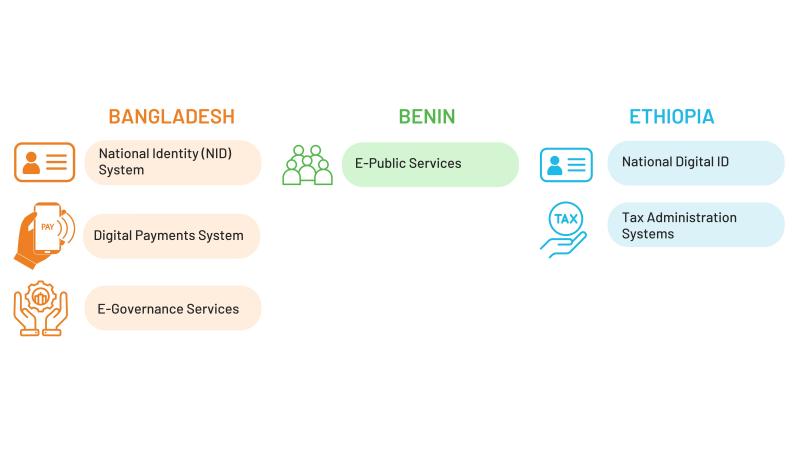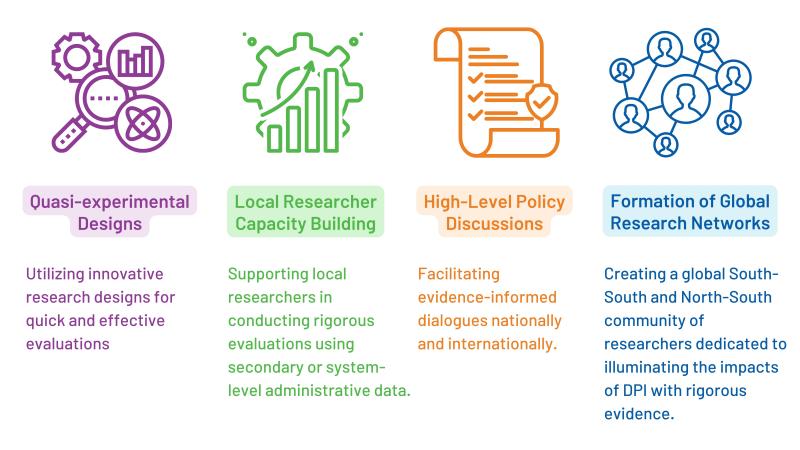
What is Digital Public Infrastructure?
Digital Public Infrastructure (DPI) refers to the digitisation of systems and frameworks that enable the timely delivery of public services and functions, thereby reducing the need for physical human intervention. This includes digital identity, payment systems, data exchange frameworks, and other technologies that facilitate efficient, accessible, and transparent public services. Learn more about DPI here.
About the Program
Program Objectives
In partnership with Co-Develop, GDN is engaged in a one-year pilot project during 2024, focusing on:

These projects will assess the impact on socioeconomic outcomes such as:
-
Tax data quality
-
Taxpayer experience
-
Broader tax base
-
Public goods and services provision
-
Gender-related constraints in accessing services
-
Economic activity
-
Financial inclusion
-
Healthcare accessibility
-
Education quality
-
Agricultural efficiency
-
Governance
-
Transparency
-
Gender equality
-
Social protection
This program is a microcosm of GDN’s larger approach, characterised by:

These characteristics allow GDN to circumvent common challenges with DPI interventions such as rapid implementation vs. slow research, limited national research engagement and scarce cross-country comparative evidence.
Future Directions
This partnership aims to create a South-South and North-South community of researchers working on DPI and its developmental impacts, generating high-quality comparative evidence on DPI rollouts and use cases. The outcomes will feed up-to-date evidence into national and global debates on DPI, contributing to a larger global initiative set to launch in 2025.
For more information, contact Francesco Obino, Balasubramanyam Pattath and Kishen Shastry Kudur Shastry.
